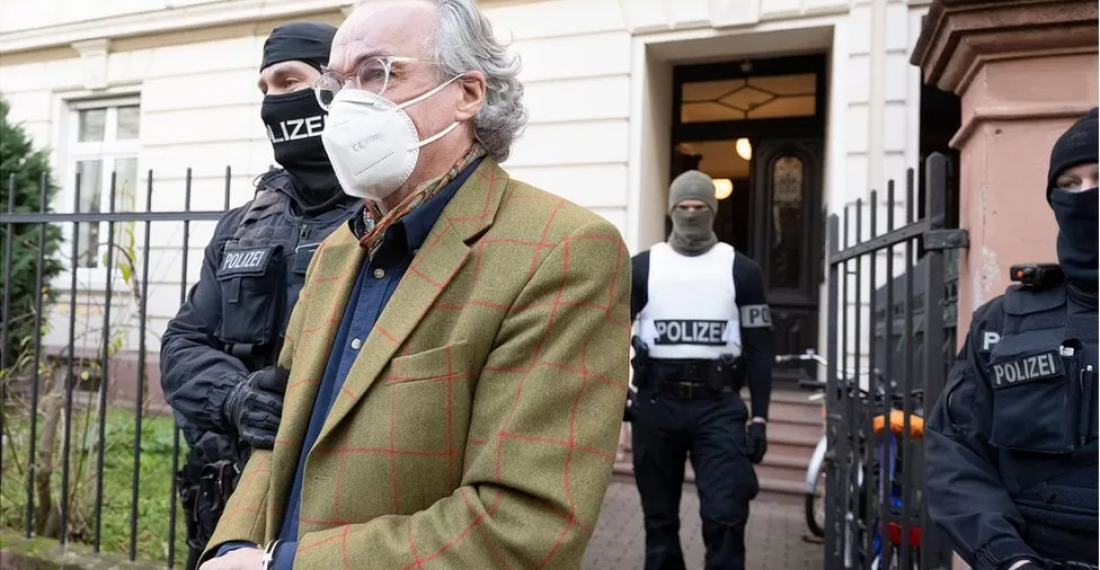German authorities announced on Wednesday (7 December) that they have arrested 25 alleged far-right extremists under suspicion of plotting to overthrow the state and replacing it with a Germany modelled on the Second Reich.
A minor aristocrat called Heinrich XIII - who is among the arrested - is believed to have been central to the plans to storm the Reichstag parliament building in a violent coup on a so-called "Day X". Involving 3,000 officers in 150 operations, arrests took place in 11 of Germany's 16 federal regions, with almost half of the arrests taking place in the southern regions of Baden-Württemberg and Bavaria. Two people were also arrested in Austria and Italy.
The extremist Reichsbürger [Citizens of the Reich] movement is said to be at the heart of the plot; it is believed that members of the far-right movement are among the arrested. The Reichsbürger movement has long been investigated by German police over violent attacks and racist and antisemitic conspiracy theories. Heinrich XIII himself has previously been described as an "at times confused" man who had fallen for "misconceptions fuelled by conspiracy theories".
While 50 people are believed to have been involved in the plot that led to Wednesday morning's raids by German police, the Reichsbürger movement is estimated to have as many as 21,000 followers, with approximately 5% thought to belong to the extreme right.






